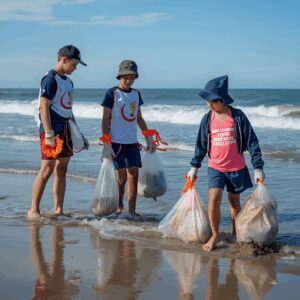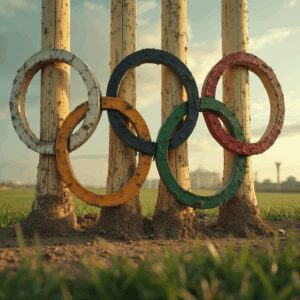Ruralism and Vincentian sporting success
Trying flipping through the annals of Vincentian sporting history and one would readily conclude that there is something about the rural people that has enabled them to rise to sporting prominence despite the fact that their sporting facilities have not always been on par with those available to urban folk.
The leading sports personalities in the history of St Vincent and the Grenadines have come from the rural parts of the country. In this regard, for the purposes of this Column, the Grenadines is also considered rural.
A historical perspective on the Rural vs Urban Challenges in SVG
In developing societies it is common to witness a national divide. The government’s tendencies to associate development with urbanisation has, for the most part, fuelled this great divide. The result is that the population is led to believe that rural areas remain essentially ‘backward’ as the place to be for general advancement is near to the main cities.
We can begin with the use of language. Rural folk are adept at the use of the vernacular, the dialect that they master and transform into fine art. Instead of being recognised for their tenacity for creativity in language, they are scoffed at, maligned, as being ignorant, incapable of fitting into the traditional language of their former colonial exploitative masters.
Pride in the culture of the masses was vehemently rejected.
We can readily remind ourselves of the challenges facing the rural populations. Challenges of a consistent supply of potable water, for example, and the obvious health maladies that became a normative aspect of rural life as a result.
The lack of an adequate and consistent supply of electricity that negatively impacted the education process of the children at whatever level was another critical, debilitating factor.
Then there was the matter of inadequate roads. Many had to use footpaths to get to school and many of the children lacked proper footwear for this, not to mention the immense difficulties accessing sports footwear.
Of immense importance to the rural children was and still is the number of Vincentians from those parts of the country that are part of the Vincentian Diaspora. They have consistently offered support, even if their earnings abroad were limited, to those at home. They never forget ‘from whence they came’ in every sense of the phrase.
Rural folk in St Vincent and the Grenadines who have had the good fortune of living abroad have been exemplary in their contributions to the annual remunerations packages to those left at home.
Rural folk are woefully deficient in the offerings of the central government, in every aspect, whether in the field of education, health, housing or sport. Yet, in the areas of culture, entertainment and sport, the rural folk have always excelled, enough to overshadow the achievements of their urban and suburban counterparts.
A cursory look around Vincentian society, which has long followed the aforementioned trends in respect of development, the ‘best’ schools are associated with the capital and the same is said in respect of health, business houses and sport facilities.
In stark contrast, despite the mouthings of politicians, the rural folk have to contend with lesser quality facilities in all of the aforementioned areas.
Sometimes, the only difference is when a political leader of the country emerges from a rural community and commits significant amounts of the nation’s resources to a sort of hands-on restructuring of the area from which he/she came.
We saw this with James Mitchell and his deliberate to enhance the official ‘playthings of development’ in the Grenadines, even if it led to an airport on Bequia that was and is totally unnecessary. It left the nation being able to boast of us having more airports per island than most other nations in the Caribbean.
Mitchell was able to take heart in his approach from the likes of Herbert Blaze of Grenada, in respect of Carriacou and Petit Martinique, ANR Robinson and his native Tobago.
Rural to national sports heroes and heroines
In our beautiful St Vincent and the Grenadines visitors to North Leeward and North Windward have immense difficulty conjuring up images of sport facilities that led to the athletes that have emerged in the different sports that have become popular in St Vincent and the Grenadines.
Canouan gave us our first NBA Basketball star, Adonal Foyle. “Bomba’ Charles created a strong basketball epoch on Union Island that often saw two teams come to St Vincent and whip daylights off the Vincentian teams, playing successive matches during an entire one-week period.
Some years later, basketball dominated the sports scene in North Leeward while Layou, in Central Leeward, dominated volleyball.
In schools basketball, Bequia emerged as one of the outstanding performers with several of its members dominating the selected Windward Islands Vincentian basketball delegation.
In 2018, Michael Findlay, himself a product of the rural people’s rise to sporting legendary status, was quoted in The Vincentian Newspaper dated Friday 31 August, as highlighting several Vincentian sporting heroes. “While delivering the keynote address, on Aug. 17, on the 40th-anniversary celebration of the Brooklyn-based Vincentian Sports Club, Hairoun, at the Friends of Crown Heights Educational Center on Logan Street in East New York…he, in turn, praised…Frank Odel “F.O.” Mason…one of those persons responsible for helping to develop my cricketing skills and for moulding my personality.”
Findlay gave kudos to Garnet Niles, ‘a wicket-keeper of great skills…’ Manning’ Jackson was one of his cricketing colleagues “of past years.”
According to Findlay, “I am still firm in my belief that players like Rudy Boucher, Norbert Hall, Dougie Doyle, Fred Trimmingham and Jeff Bailey were ahead of their time…former Notre Dames, Honved, Pastures United and St. Vincent and the Grenadines defender, Leslie Ollivierre.”
Understand too, that the patch that was the cricket ground at Troumaca Bay, the arena that produced some of the finest cricketers of this country, could barely have satisfied international requirements as a cricket ground.
In Netball and Basketball, Vasha Adams of Windward is a standout. Skiddy Francis and her sisters from the Marriaqua area remains outstanding athletes for the sport.
In athletics, Stubbs gave the nation Lennox Adams who founded the St Vincent and the Grenadines Olympic Committee 40 years ago, in 1982; the Grenadines produced two fine distance runners, Corea and John. Chateaubelair provided the nation with Eswort Coombs, 1996 Olympic 400m semi-finalist while Sandy Bay gave us Pamenos Ballantyne, the Caribbean’s most outstanding distance runner for almost a decade.
Kineke Alexander emerged out of the Marriaqua Valley.
Penniston produced the nation’s best female athlete prospect in Ulanda Lewis and rural developed Handal Roban, our latest 800m star athlete.
We can articulate a whole list of cricketers and footballers and athletes from other sports.
We are not ignoring the sporting heroes and heroines that emerged from urban and suburban areas. We are here intent on making the point that rural SVG has been adept at producing the vast majority of them.
Reality check
Honesty requires of us that in analysing the situation in SVG regarding sport we ought to credit some initiatives undertaken by successive governments, albeit significantly later than was necessary.
We have witnessed the provision of sporting facilities under the NDP government with a number of hard courts in different parts of the country. At a later point, the government at the time engaged the National Lottery and VINLEC to provide lighting and fencing for several of the hardcourts.
Unfortunately, one of the sad features of the projects was the wanton destruction of the fencing at many of the aforementioned facilities. It was and still is very difficult to understand what could possibly have motivated citizens to systematically destroy the fences and, in some cases, destroy the lighting.
Under the ULP administration, we have had the promise of ensuring that where the NDP government failed in sport they would be successful. Unfortunately, the attention to rural sport development remains mixed. Political biases ensured that some constituencies were better facilitated than others.
More disappointing has been the placement of some sporting facilities under the National Lotteries Authority (NLA) as opposed to the National Sports Council (NSC). The National Sports Council Act clearly places sports facilities under it with no mention of the Lotteries Authority. The prejudice is clear. The NLA generates funds from its gaming while the NSC relies on the Ministry of Finance through the national budgetary allocation and an annual contribution from the NLA. The NSC can barely meet its annual expenses while the NLA continues to generate profit, annually. The facilities under the NLA are close to first-class while those under the NSC are like ‘outside children” in the family.
The matter of maintenance has always been a problem. However, this is not the case of those facilities under the purvey of the NLA.
Even as the current administration boasts of its provision of sports facilities, the most recent of which, the national stadium at Diamond, we addressed in last week’s Column, the rural areas continue to dominate sport.
Often we fail, as a nation, to celebrate the fact that the athletes from the rural areas carry with pride the national flag, at international sports competitions.
We often treat the athletes from these areas as ‘add-ons’ rather than Vincentian citizens, imbued with a genuine love of country and characterised by a commitment to ‘becoming’ and ‘belonging’. Striving after excellence can be made to enhance their citizenship and patriotism and genuine acknowledgement of the immense potential that blossoms at the right time.
Meagre resources, economic and otherwise, can readily be sued to the advantage of those who are made to suffer under the joke of the prejudicial legacy of conquest, slavery and colonialism.
Ruralism remains the sustenance of the Vincentian agriculture industry and traditional culture. We can and must add sport to the contribution of our rural people.
Let us celebrate their commitment to this nation and their continued striving for excellence as Vincentians.






